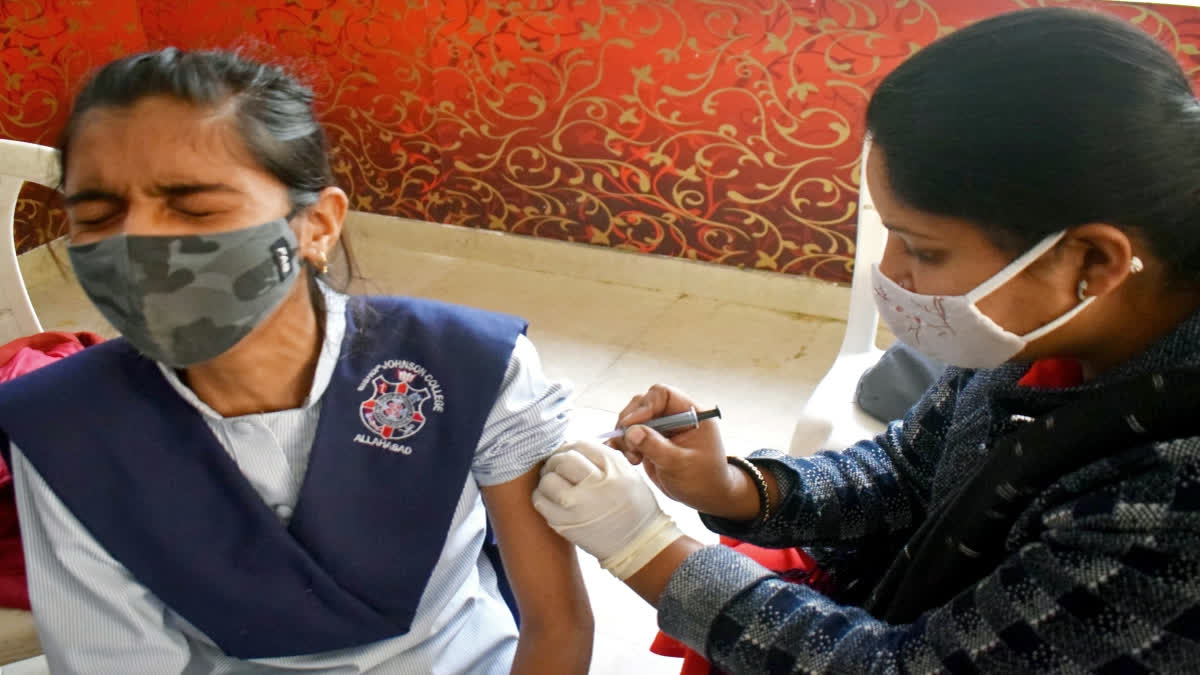New Delhi: Issuing a show cause notice to Banaras Hindu University (BHU) over a recent journal published regarding "safety analysis" of Covaxin, the Indian Council of Medical Research (ICMR) has warned of taking legal and administrative action if they don't publish an erratum for misleadingly acknowledging the medical research body in the study.
In a strongly worded letter sent to Prof Sankhwar, director of Institute of Medical Science, BHU, ICMR Director General Dr Rajiv Bahl said the ICMR has been incorrectly and misleadingly acknowledged in the paper entitled 'Long-Term Safety Analysis of the BBV152 Coronavirus Vaccine in Adolescents and Adults: Findings from a l-Year Prospective Study in North India.'
The ICMR accused both the researchers of the study - Dr Upinder Kaur, Asst Professor and Dr Sankha Shubhra Chakrabarti, Head of Department, Geriatric Medicineurther at BHU for acknowledging ICMR for the research support without any prior approval of or intimation to ICMR, "which is inappropriate and unacceptable."
"We ask you to immediately get the acknowledgement to ICMR removed and an erratum published. We have also noticed that you have similarly acknowledged ICMR in similar previous papers without permission. Please explain why ICMR should not seek legal and administrative action against you," Dr Bahl said in the letter.
Dr Bahl said ICMR cannot be associated with this poorly designed study which purports to present a "safety analysis" of Covaxin.
"The study has no control arm of unvaccinated individuals for comparing the rates of events between the vaccinated and unvaccinated groups. Hence, the reported events in the study cannot be linked or attributed to Covid-19 vaccination," Dr Bahl said.
He said that the study does not even provide background rates of observed events in the population, making it impossible to assess the change in incidence of observed events in the post-vaccination period. Baseline information of study participants is missing.
"The study tool used is inconsistent with 'Adverse Events of Special Interest (AESI)' as defined in the reference provided in the paper for AESI. The method of data collection has a high risk of bias. Study participants were contacted telephonically one year after vaccination and their responses recorded without any confirmation with clinical records or by physician examination," Dr Bahl said.
The ICMR has sent a similar letter to Nitin Joshi, editor of New Zealand based 'Drug Safety Jonal' for publishing the study.
Dr Bahl in his letter asked Joshi to retract this paper which implicitly makes conclusions about vaccine safety that are not supported by evidence.
Taking a strong note over the issue, the union health ministry said that concerns have been raised on the safety of the Covaxin vaccine after the publication of a research paper, titled 'Long-Term Safety Analysis of the BBVl52 Coronavirus Vaccine in Adolescents and Adults: Findings from a l-Year Prospective Study in North India', authored by Kaur in the Drug Safety journal.
"The article misleadingly and erroneously acknowledges the ICMR. ICMR is not associated with this study and has not provided any financial or technical support for the research," the health ministry said.
The researchers at BHU in a one-year follow-up study stated that nearly one-third of 926 individuals who received Bharat Biotech's anti-Covid vaccine Covaxin reported 'adverse events of special interest' or AESI.
An AESI is an event that occurs in some people post immunisation that has the potential to be causally associated with a vaccine product. However, Bharat Biotech, the manufacturer of Covaxin, also released a statement in response to the study saying that several studies have been executed on the safety of Covaxin, and published in peer-reviewed journals, demonstrating an excellent safety track record.



